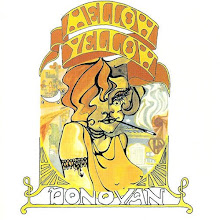A Small Purse of Pure Earth
A headline I came across this morning, "Woman Prefers Eating Dirt", got me thinking about food again, and food prejudice. Eating dirt sounds like a pretty good idea to me if it's not full of contaminants. The pathological practice of eating nonfood items, called pica, is considered "abnormal" by some scientists, but does that make it so? In my mind, a society that condones the pathological practice of eating Cheetos is abnormal. And criminal for spreading their pathology of eating junkfood to other countries.
Gerald N. Callahan, in his article "Eating Dirt", says:
In the United States, many of us believe that humans should only eat food. We consider the consumption of nonfood items pathological, even though we know that what people define as “food” varies dramatically by region and ethnicity. We call the pathological act of eating nonfood items pica. Pica is a disease, but a disease different from polio or smallpox. No infectious agent is obviously associated with pica. Pica is a disease only because we believe normal “undiseased” persons would not eat anything but traditional human foods; some of those who do, some of the time, are at considerable risk because of their unusual appetites.Pica includes eating things like lead paint chips, obviously not a healthy practice, but the type of pica called geophagy, the act of eating dirt, Callahan says may actually be good for you.
Eating dirt, then, rather than being abnormal, may be an evolutionary adaptation acquired over millennia of productive and not-so-productive interactions with bacteria—an adaptation that enhances fetal immunity and increases calcium, eliminates gastric upset, detoxifies some plant and animal toxins, and perhaps boosts mothers’ immunity at times when the hormones of pregnancy (13), factors produced by the fetus (14), changes in the complement system, replacement of MHC class I antigens in the trophoblast (15), and who knows what else suppress the mother’s natural immunologic desire to destroy her fetus—a miracle, nearly.Our frenzy to kill bacteria (the popularity of anti-bacterial soap for example) destroys good bacteria and creates weak immune systems. And our senseless pollution and destruction of the planet kills our medicine, the earth itself.
So, maybe a small purse of pure earth found in the heart of Bhutan (where the people have a saying, 'If it is medicine, you should take it from an enemy. But if it is poison, you should refuse it from a friend.') will be the third perfect food tucked into my backpack with care as I prepare to set forth to roam this world.
Other than water, what little stuff we humans have inside us is largely dirt. Admittedly, this dirt is sometimes highly processed before we receive it, but most solids that make up humans and other creatures either are now or recently were dirt (the simple stuff that stripes the outer surface of our world, the thin paste that raises us above rocks) transformed by sunlight into plants or animals. Most of us prefer the dirt we eat in the form of cows and sheep and carrots and squash and bison and sorghum. Other dirt we’d just as soon scrape from our feet and leave at the door.



0 Comments:
Post a Comment
<< Home